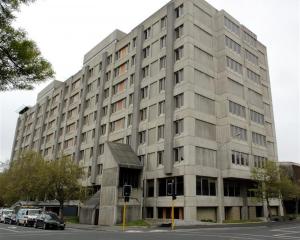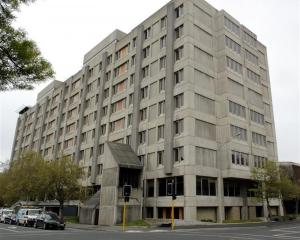The Dunedin Hospital doctor, whose name is suppressed, was brought before the Medical Council's professional conduct committee after the female patient complained about the doctor's relationship with her former civil union partner.
The complainant, known as Ms X, was concerned the doctor was able to access her medical files, which the hospital assured her she had not done.
The committee found there was a breach of trust and recommended the doctor undergo monthly counselling and mentoring, which the Medical Council agreed with.
The doctor then sought a judicial review of the council's decision in the High Court at Wellington, arguing there was no doctor-patient relationship and the ruling was a ''black mark'' against her.
Justice Robert Dobson has now ruled the council's decision was unreasonable and ordered it quashed.
The court heard the doctor had known both Ms X and her civil union partner, Ms A, before the complainant received treatment at the hospital in December 2007.
The doctor was not responsible for Ms X's care but treated her on three occasions - including prescribing her morphine, taking a blood sample and helping to calm her after a procedure.
A short time later, the civil union between Ms X and Ms A ended.
Three months after Ms X was treated at the hospital, the doctor began a relationship with Ms A, whom she had known for many years.
The Medical Council's professional conduct committee found the doctor had breached its guidelines on doctor-patient relationships, noting the complainant felt betrayed and had lost trust in the public health system.
It said the doctor's denial of any wrongdoing showed a failure to recognise the breach of trust, and the doctor appeared to lack insight into the harm she had caused by entering into the relationship.
The doctor's lawyer, Harry Waalkens QC, argued there was no doctor-patient relationship and the doctor's treatment of Ms X was fleeting.
Lawyer for the Medical Council Nick Russell argued a doctor-patient relationship was indisputable because the doctor prescribed her medicine.
Justice Dobson found the council was unreasonable in proceeding as if there was a doctor-patient relationship, noting in his judgement the doctor's treatment of Ms X was routine and incidental.
The council was also unreasonable in finding there had been a breach of trust, given the absence of an ongoing doctor-patient relationship.
Justice Dobson quashed the council's decision and ordered it to pay costs to the doctor. He permanently suppressed the names of all three parties.
Mr Waalkens yesterday said his client was delighted to have been exonerated.
''The decision, frankly, was over the top, right from the word go,'' he said.
''That black mark has now been eradicated so she's delighted about that.''
Mr Waalkens said he was saddened the council had come down so heavily on his client.
''She's an extraordinarily good doctor ... never had any problems ... absolutely committed to her work as a doctor, works only in the public health system. And she gets rewarded with a finding like this - it completely upset her.''








